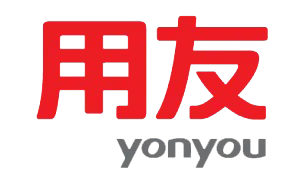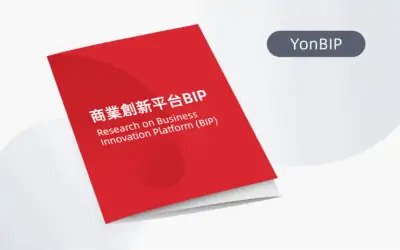how-to-get-out-of-the-digital-dilemma
Yonyou BIP: How can Chinese enterprises "going out" get out of the digital dilemma?

"In the era of the Internet of Everything, no one is an island."
Nowadays, more and more Chinese enterprises are going abroad. How to realize digital transformation overseas is a problem that many enterprises urgently need to break through.
Should the enterprise continue to use the management system consistent with the domestic one, or purchase a new digital system overseas? Perhaps, there is a better solution here.
In the digital economy era, the cloud and the network are the carriers and bridges that carry data.
Cloud computing and mobile Internet have opened up a large number of data channels, breaking the physical space-time boundary of information transmission between people, and changing the digital architecture of enterprises. Enterprises all over the world are beginning to pursue higher data capacity and faster and wider information flow capabilities. The internal and external management of enterprises is undergoing a process of comprehensive digitalization, and transformation and upgrading have become crucial.
At the same time, with the development of new-generation information technologies such as cloud computing, artificial intelligence, Internet of Things and big data, the development direction of the Internet industry has gradually shifted from the consumer Internet to the industrial Internet, from emphasizing the connection between people to the Internet of Everything, emphasizing the interconnection of production, services, products and users, and building information bridges one after another.
Business services are an essential part of the Industrial Internet. For various business environments, enterprises build different systems, such as human resource management system, financial system, procurement system, ERP, etc., forming a vertical "information chimney".How to connect chimneys and how to break information islands have become the focus of enterprise management digital transformation.

In the future, enterprises will advance in the direction of digital intelligence in an all-round way, and more and more local enterprises are capable of going global.
However, in the process of Chinese enterprises going overseas, due to the differences in culture and policies in different regions, the digitalization of enterprise management will always face many discomforts and challenges: employees hope to use a work platform suitable for local cultural habits, while domestic headquarters pay more attention to the transfer of a unified management system.
Whether enterprises should continue to use the same management system as in China, or purchase a new digital system overseas has become a dilemma for many managers.
Domestic use vs local purchase?
Bowen Guo, general manager of UFIDA Hong Kong: "Whether to "cut the shoes to fit the feet" or "cut the feet to fit the shoes" is a dilemma for many Chinese companies going overseas. "
When using the domestic system, the domestic headquarters can also manage overseas teams according to uniform standards. However, the domestic system is often not suitable for overseas local system norms and work culture. At the same time, there are a large number of other work needs that are not met, which makes overseas employees unable to adapt and high staff turnover.
On the other hand, buying a new system locally can meet the needs of overseas institutions and comply with local regulations and employee usage habits, but it may not be able to transmit the management and control methods of the headquarters, resulting in inconsistent management standards between overseas and domestic, and untimely group statistical information, resulting in loss of management control.

"Whether to "cut the shoes to fit the feet" or "cut the feet to fit the shoes" is a dilemma for many Chinese companies going overseas. "Bowen Guo, general manager of UFIDA Hong Kong, said that if the domestic digital system is forcibly applied to overseas companies, it may cause conflicts in management models in the early stage, which is not conducive to long-term development.
He believes that in the process of corporate globalization,A mature, professional and flexible system can promote the digital construction of enterprises and help enterprises gain a foothold and expand overseas. "However, this process is not easy. It requires a transnational professional team familiar with domestic and foreign working methods and cultural differences to introduce professional digital systems to overseas institutions in stages."
Build a bridge between the inside and outside
"Connection" is a key element of business management.
A good management platform can not only connect across departments and businesses, but also connect across regions and cultures, creating a closed management loop between internal and external enterprises in the context of globalization.
When Chinese software manufacturers go global, the domestic management system can be considered and continued. At the same time, they can gain a foothold in overseas markets and comply with local cultures and laws.
UFIDA products have the ability to globalize, support multi-language, multi-currency, multi-exchange rate, multi-time zone and other basic functions of globalization and localization services, and can provide professional and comprehensive support for Chinese-funded enterprises in the process of globalization. Bowen Guo said, "Yonyou has expanded its overseas business for 18 years, accumulated project experience around the world, and established a strong delivery team in many overseas countries."

UFLow code development platformIt simplifies the originally complicated development work, which is convenient for enterprises going abroad to quickly build a system suitable for them.
As early as 1982, British IT scholar James Martin published the research Application Development Without Programmers, looking forward to the future working model-everyone can write programs.
Nearly 40 years later, this concept is emerging in the market, namely "low-code". It can assemble complex and repetitive codes into modules, and users can realize product output by simply dragging and dropping on the visualization page, and flexibly apply various business scenarios.
Products supported by low-code or no-code tools can avoid the shortcomings of directly using existing products and self-development, make program development easier, solve the long-term pain point in enterprise management that "programmers don't know business, salesmen don't know programming", and shorten the process cycle of customized services.
Business innovation platform YonBIP
UFBusiness innovation platform YonBIPFor example, YonBIP uses the low-code development platform YonBuilder to quickly build business applications like Lego blocks, providing enterprises with complete and personalized solutions. Bowen Guo pointed out, "YonBIP has configurable capabilities and no-code development capabilities, responds to changes quickly and at low cost, and meets different regulations in various regions." YonBIP's powerful technology platform endows products with high flexibility, which effectively helps companies make up for the shortcomings of digital resilience in the process of globalization.
As a new generation of enterprise digital intelligence innovation platform, YonBIP can effectively support the global expansion of enterprises. Compared with the limited ecology of traditional ERP, BIP is a more open and flexible system that connects information chimneys and realizes data interconnection.
For overseas institutions, it may no longer be a dilemma whether to continue using or self-build. Facing the ever-changing market, Chinese enterprises "going global" should be equipped with more flexible, professional, and global management tools to build a bridge for internal and external communication, enhance digital resilience, improve corporate competitiveness, and jointly promote business innovation.


